Lion Rampant Mixer
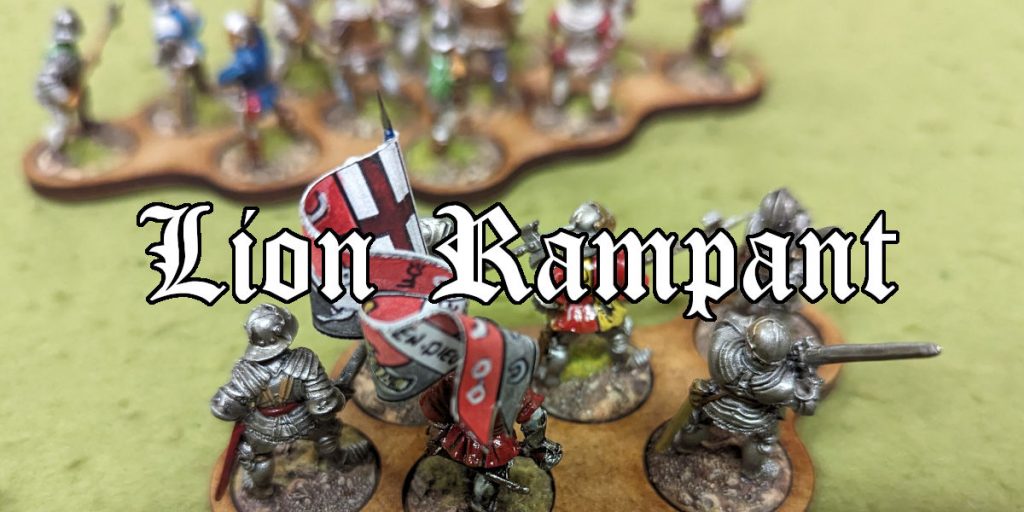
It was the last event of the year at Farnborough Wargames, and a mixer game of Lion Rampant had been organised. The idea was for people to play three games, with random armies against random opponents. Points would be gained for killing the enemy, and also getting a unit over the centre line of the table. Each army was 24 points, and sometimes they were identical, sometimes quite different. We would have at most an hour for each game, which was a reasonable time for a game of Lion Rampant.
My first game was something I was familiar with – Vikings against Saxons. Deployment was up to 10″ from the centre line, which meant we started quite close to each other, encouraging a quick and bloody battle. First player deploys their whole army, then the second player does, then first player can move a couple of units beyond 10″ of the centre. The second player activates first.
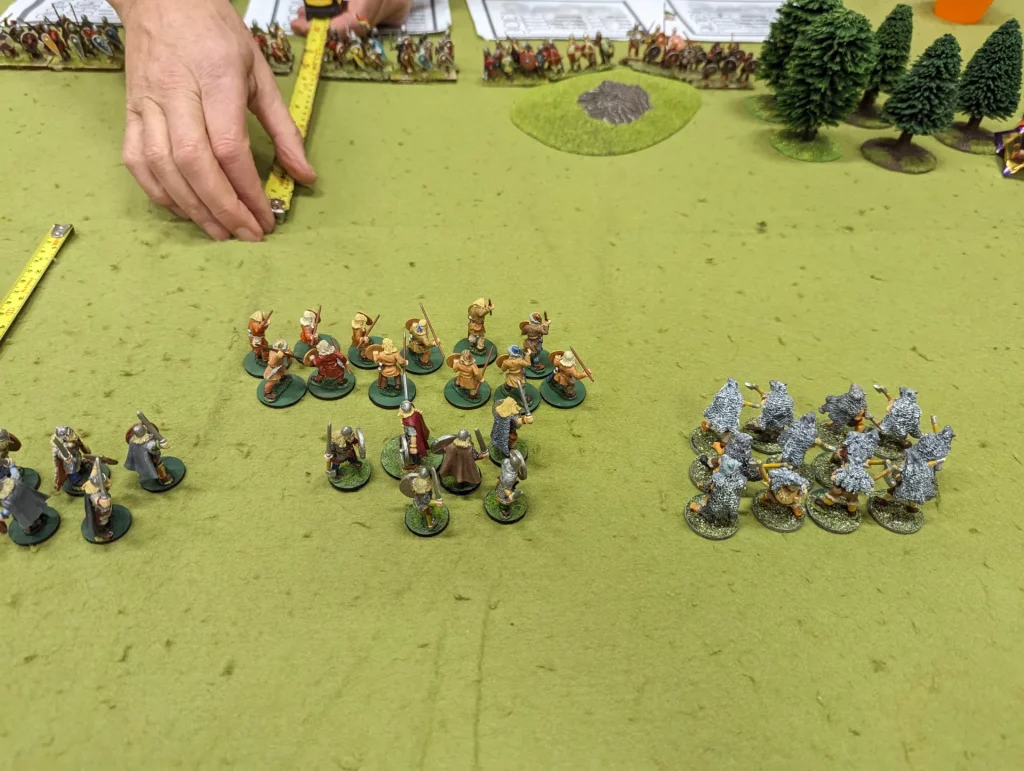
We had a simple deployment, and mostly just tried to get into melee. I had one unit of archers, which I got up onto a hill on the western flank. They were charged by some Saxon infantry, who surprisingly bounced off. Twice though I tried to open my turn with my archers, and both times they failed to activate, so I missed my turned completely.
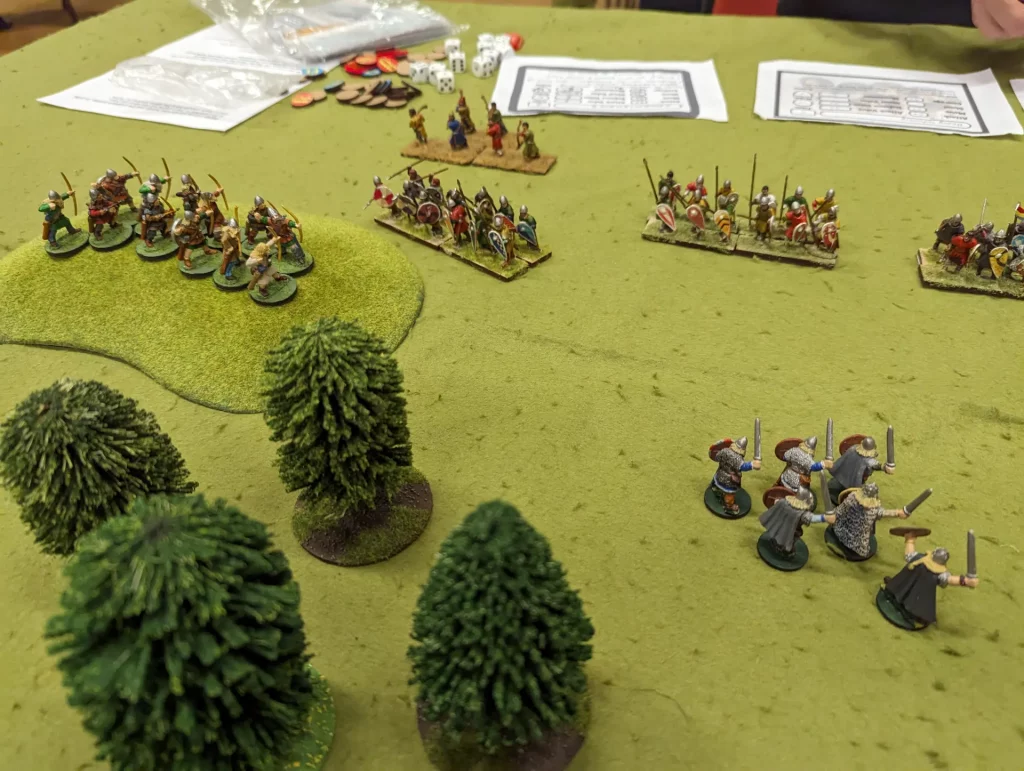
Half-way through the game, it was pointed out that the competition was using the optional rule of being able to re-roll the first failure, but we decided to continue with what we’d been doing. Which was good, because my opponent also managed to fail some initial activation checks.
In terms of kills, the victory went to my Vikings. My archers ended up being quite effective, and my melee troops, especially my warriors, ended up slaughtering the saxons. The saxons however got points for crossing the centre of the table – mostly I’d let them come to me, and then destroyed them. So I won 13 points to 12.
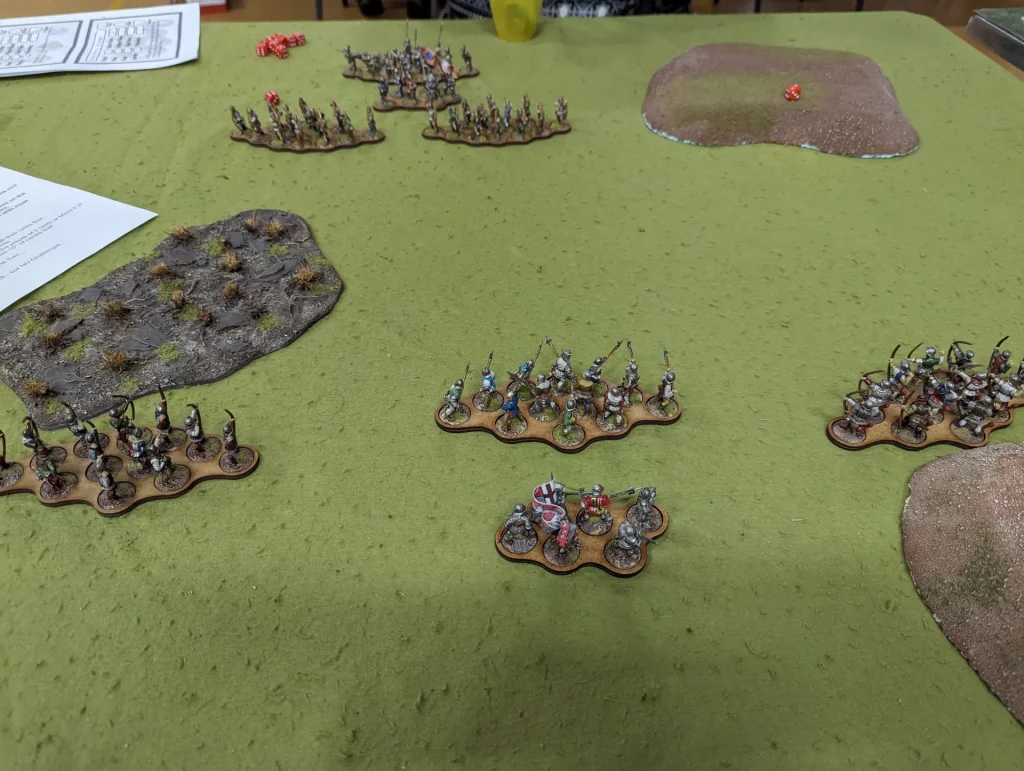
The second game was with two identical Wars of the Roses armies. We each had two units of archers, a unit of warriors and a small elite unit. Again, deployment was relatively simple, and I managed to move my archers back up onto the hill to give them protection from any infantry charges.
However, my opponent got some very good rolls with their shooting attacks, and I quickly lost one of my archer units. My other units went down quickly as well. I forced his leader unit to retreat, but I wasn’t doing so well since I was now outnumbered two to one on archers.
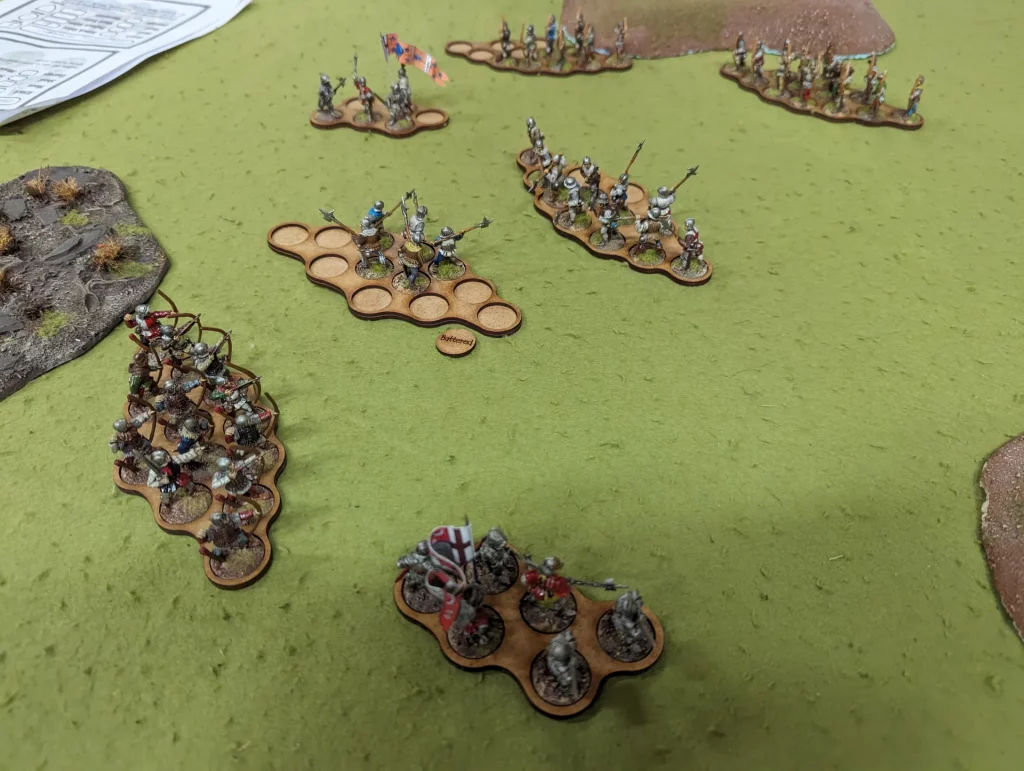
By the end of the game, I’d been pretty much slaughtered, though my opponent’s leader unit was down to a single figure. I think I might have scored two or three points, versus about a dozen for my opponent. So this game was a complete loss.
By the time of the third game I was very much out of energy (as I’ve said before, I have more energy for a single long game than multiple short games). The final game was a Crusader period battle, with my skirmisher heavy Muslim army against a Crusader army of heavy mounted knights. There was also a change in the rules, since apparently deployment was meant to be more than 10″ from the centre, not up to 10″ from the centre (as had been written), so this game took longer to get started.
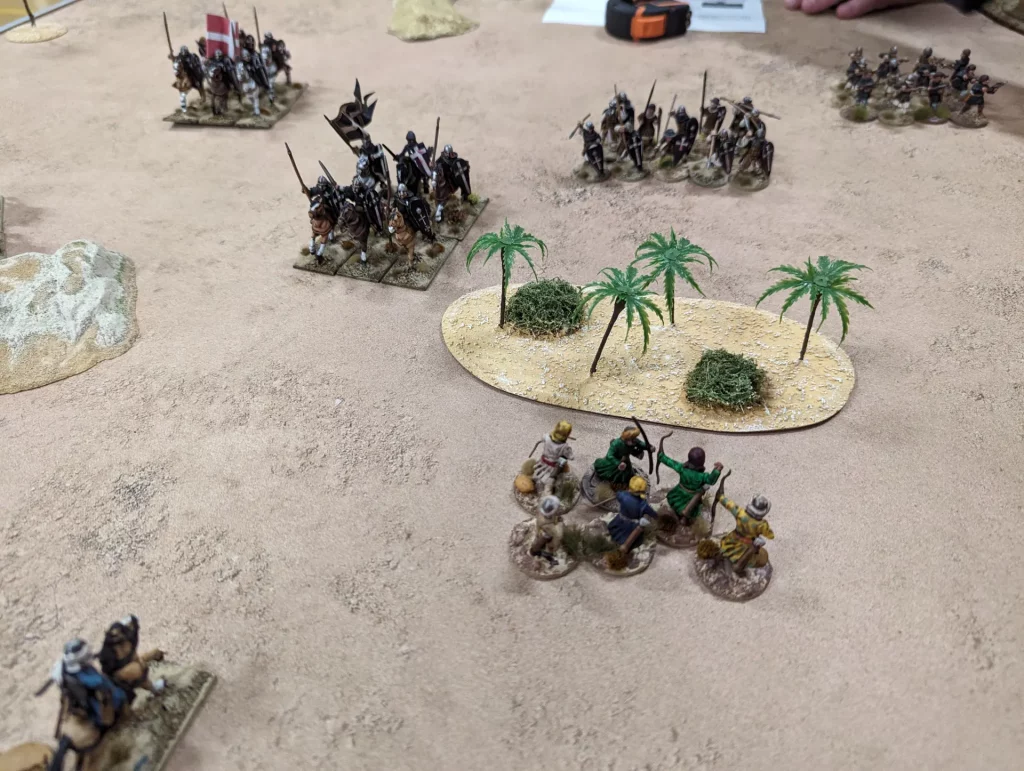
It was my first game with mounted troops, though half my mounted troops were light skirmishers. I started my unit of warrior infantry on the eastern flank, away from the cavalry of the crusaders. They were my only effective unit. I managed to get them across the table and into melee with an enemy unit, wiping them out in one or two fights.
The rest of my army didn’t do so well. Against the heavy horse, my units collapsed. My light troops would have been better in heavier terrain, but there was little terrain to hide in. Twice I tried to use the ‘run away and shoot’ ability to avoid being charged, and both times I failed. This often left me with an armour of 1 (technically zero, but we assumed there is a minimum of armour of 1), so I quickly lost those units.
My archers, which I’d placed atop a building, were also lost quickly when I rolled a double 1 for a morale test, losing the entire unit after they took just a couple of casualties.
So my third battle was also a complete disaster. Though the second had also been a disaster, it had felt more like I’d had a chance, and that the loss was down to some bad luck (on my side, good luck for my opponent). For the third battle, it did feel like the two armies weren’t quite so balanced and I wasn’t sure what tactics I should have used. It did feel a bit like a Vikings v Irish Saga game, with no terrain.
So two out of three good games. There was also cake, which was good consolation after a loss, or for celebration after a victory (cake can be spun either way). A good evening over all, though very tiring having multiple games.